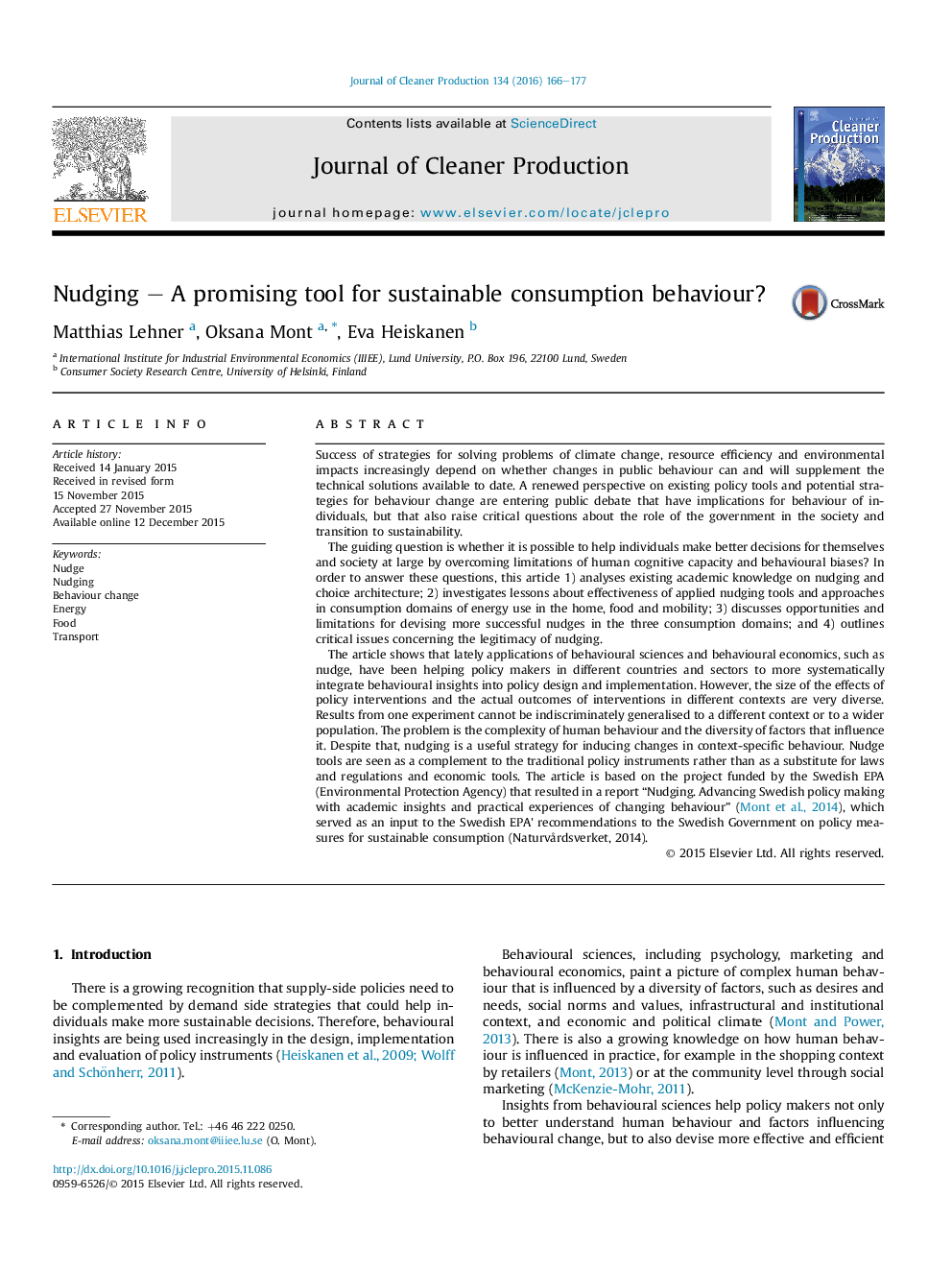| Article ID | Journal | Published Year | Pages | File Type |
|---|---|---|---|---|
| 10687781 | Journal of Cleaner Production | 2016 | 12 Pages |
Abstract
The article shows that lately applications of behavioural sciences and behavioural economics, such as nudge, have been helping policy makers in different countries and sectors to more systematically integrate behavioural insights into policy design and implementation. However, the size of the effects of policy interventions and the actual outcomes of interventions in different contexts are very diverse. Results from one experiment cannot be indiscriminately generalised to a different context or to a wider population. The problem is the complexity of human behaviour and the diversity of factors that influence it. Despite that, nudging is a useful strategy for inducing changes in context-specific behaviour. Nudge tools are seen as a complement to the traditional policy instruments rather than as a substitute for laws and regulations and economic tools. The article is based on the project funded by the Swedish EPA (Environmental Protection Agency) that resulted in a report “Nudging. Advancing Swedish policy making with academic insights and practical experiences of changing behaviour” (Mont et al., 2014), which served as an input to the Swedish EPA' recommendations to the Swedish Government on policy measures for sustainable consumption (NaturvÃ¥rdsverket, 2014).
Related Topics
Physical Sciences and Engineering
Energy
Renewable Energy, Sustainability and the Environment
Authors
Matthias Lehner, Oksana Mont, Eva Heiskanen,
